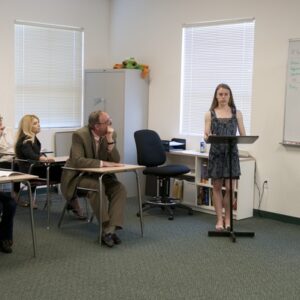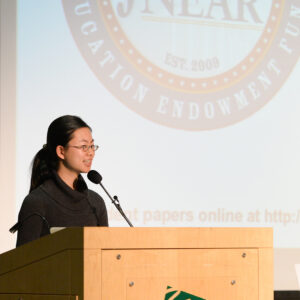On April 23, this year’s student scholars in the John Near and Mitra Family Scholar Grant Program, all seniors, were honored at a special event held at Nichols Hall, where they each spoke on their research process and their overall experience in the program.
Near scholar Andrew Smith’s project addressed the public history of Boston and how it shaped popular conceptions of liberty and freedom, particularly during the 1990s. One focus of his work was the city’s Freedom Trail, which guides tourists to famous historical sites throughout the city. However, Smith pointed out, the Freedom Trail was created to generate tourism, “not on the ideas or the love of history,” he said. Eventually, he said, more complex and less hagiographic history was added to sites along the Freedom Trail, exploring divisions in class, race and gender.
Ritu Belani, the second of this year’s Near scholars, researched the development of stand-up comedy in the Muslim community, focusing on how Muslim comedy had developed in the days since 9/11, after which racial profiling was extremely common. Muslim comedians spent a great deal of time beating back stereotypical accusations that the routinely faced throughout George W. Bush’s presidency. An important part of her work was organizing her own stand-up comedy show, titled “Ha Ha Halal,” at a local mosque. “Now I can say my comedy has been cited in a peer-reviewed scholarly publication,” she said.
Daphne Avkarogullari, another of this year’s Mitra scholars, explored the quandaries posed by W. E. B. DuBois’ idea of double consciousness, ““this state of doubleness, a kind of split psyche that comes with being African-American and the two identities of being Black and being American because of [what Du Bois described as] the inherent contradiction within those two identities.” she said. During her research, she found that double consciousness was not given proper consideration among scholars. “A lot of them don’t ever go back and look at ‘The Souls of Black Folk’…and ask, ‘how did Du Bois say he could solve this?’ because as an issue that causes a lot of psychic and social pain for African Americans, it is something that needs to have a solution.”
Next, Mitra scholar Trisha Iyer channeled her interest in ancient Rome into a probe on the similarities between Caesar Augustus’ rule and Mussolini’s use of propaganda to establish power in fascist Italy. “I was trying to find a place to enter the conversation about Mussolini and his life,” she said. She subsequently found several key parallels between the reigns of both rulers. One example was that both projected themselves as steady, powerful rulers in uncertain times. Both also espoused the use of violence to restore their respective nation’s former glory.
Finally, Mitra scholar Alena Suleiman surveyed the oeuvre of Chinese-American artist Bernice Bing, who she became interested in while interning at the Asian Art Museum in San Francisco. Suleiman found that relatively little scholarship about Bing existed, but was fascinated by curator Lydia Matthews’ “quantum dimensions” interpretation of Bing’s life. “Through this idea of quantum dimensions, it connects the idea that everything is interconnected in the universe, just like Bing’s life and work. And how they’re influenced by this network of past and present influences,” Suleiman said.
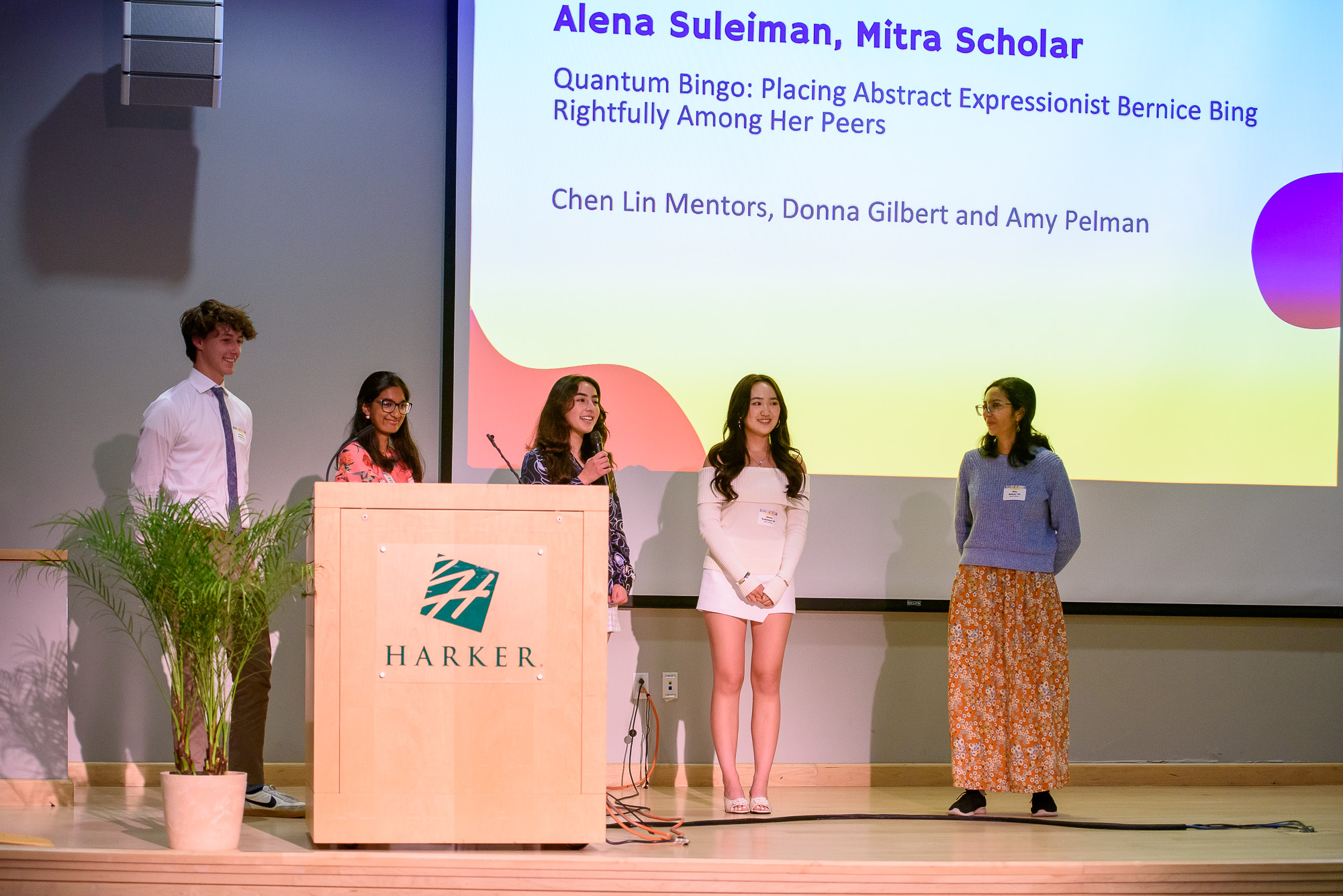
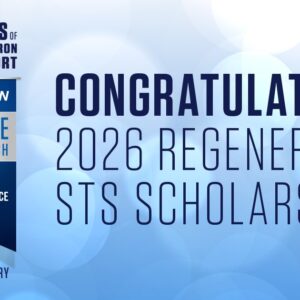
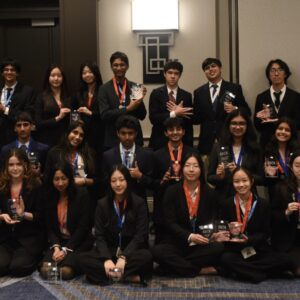
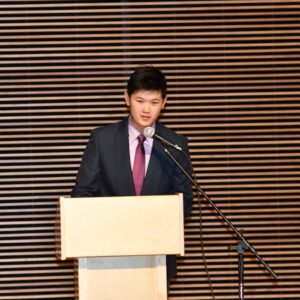

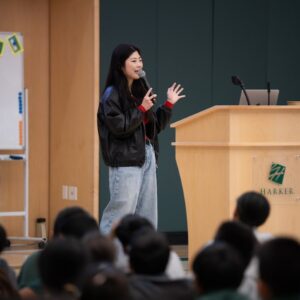
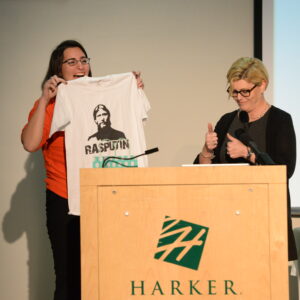


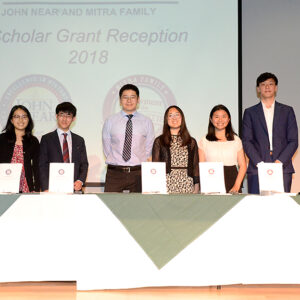
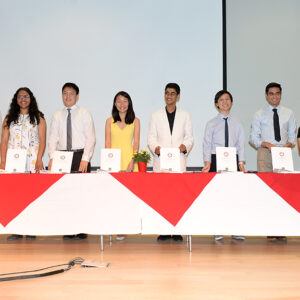
![[UPDATED] Harker senior named 2017 Presidential Scholar Steimle_mask](https://news.harker.org/wp-content/uploads/2017/05/Steimle_mask-300x300.jpg)
